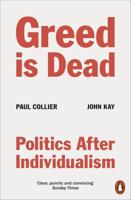Publisher's Synopsis
In this text, the third volume of ""History of Political Ideas"", the author continues his exploration of one of the most crucial periods in the history of political thought. Illuminating the great figures of the high Middle Ages, Voegelin traces the historical momentum of our modern world in the core evocative symbols which constituted medieval civilization. These symbols revolved around the enduring aspiration for the ""sacrum imperium"", the one order capable of embracing the transcendent and immanent, the ecclesiastical and political, the divine and human. The story of the later Middle Ages is that of the ""civilizational schism"" - the movement in which not only the reality of but the aspiration for the sacrum imperium gradually disappeared. His recognition of this civilizational schism provides Voegelin with his perspective on medieval society. William of Ockham, Dante, Giles of Rome and Marsilius of Padua all emerge in his study as predecessors to modern thought; each turns to personal authority and intellectual analysis in an attempt to comprehend the loss of the sacrum imperium. Yet the story of the later Middle Ages is not shown to merely revolve around disintegration. Voegelin recognizes the emergence of the constitutional political tradition as the most positive development of this period. His study of the English political pattern is juxtaposed with his perspective on the German imperial zone.










